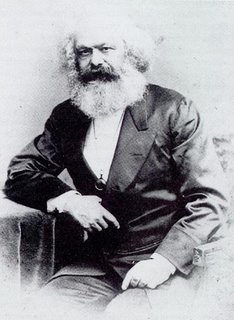UseS & GratificationS...

The opposite of effects theory…
Assumes an active audience, which chooses the texts it consumes and where the individuals have differing reasons for consuming these texts.
Bulmer and Katz expanded this theory in 1974, suggesting a series of reasons why audiences consume certain texts:
Diversion – escape from everyday problems and routine
I enjoy watching movies, as they allow me to escape reality. I believe Disney films are most effective in this and somehow have this power to make you forget about all stresses of life, and just make you feel like a child again. Example include ‘Aladdin’ and ‘Beauty and the Beast’, where, even though the text is fiction, you still place yourself in the situation of the characters. It creates a sense of ‘escapism’.
Personal relationships – using the media for emotional and other interaction, e.g. substituting soap operas for family life
I personally don’t find soaps interesting anymore, the situations seem to be repetitive and boring. However, I used to be a fan of Eastenders, back in the day, but I could never relate to the problems which the characters suffered. On the other hand, I was a consumer of magazines e.g. MIZZ and Cosmo Girl, as they offered advice and allowed a personal interaction.
Personal Identity- Constructing their own identity from characters in media texts, and learning behaviour and values
When watching certain media texts, especially movies, I sometimes tend to identify with the women characters on screen. For example, if a character is made to play a role, which I have experienced in real life, I can identify with them and their feelings. However, I don’t look up to the actors as role-models or people I would necessarily want to be like.
Surveillance – information gathering, e.g. educational programmes, weather reports, financial news, holiday bargains
I watch the news at least once a week, and also read newspapers to keep up to date with current affairs, and also to see what is new with the ‘entertainment world’. I also use the BBC website to find out the daily forecast. ‘The Guardian’ website is also one which I check regularly.
Denis McQuial suggests a more detailed breakdown of audience motivation:
Information:
Finding out about relevant events and conditions – watching the news and also browsing the net build up my knowledge about the on goings in the world
Seeking advice – used to consume magazines for this, but I have my friends for this
Satisfying curiosity and general interest – I like to find out about what is new in the ‘entertainment world.’ For example, new film releases, music…etc
Learning:
Self-education – when watching films, soaps, dramas…etc we are being entertained but also subliminally learn values and ideologies through them, about the behaviour that society currently accepts.
Confidence through gaining knowledge
Personal identity:
Finding reinforcement for personal values – I enjoying watching TV shows, which include Asians. For example, ‘Goodness Gracious Me’ even though this is comedic, you still learn about what your culture accepts and frowns upon.
Finding models of behaviour
Identifying with celebrities – ‘Angelina Jolie’ because she has big lips like me..lol.. JOKE!
Gaining insight into oneself
Integration and social interaction:
Gaining insight into circumstances of others – by reviewing media texts which comment on situations that a family member or friend may be going though
Identifying with others/a sense of belonging
Finding a basis for conversation and social interaction – ‘water caller TV’, this includes programs such as Friends. When the last episode aired, I can recall everyone talking about it the next day.
Having a substitute for real-life companionship
Helping to carry out social roles
Enabling one to connect with family, friends and society – this could be achieved only by watching and consuming similar texts as the mass.
Entertainment:
Escaping, or being diverted, from problems – I think the best media text for this would be films, as they allow you to escape reality and just get lost in a whole new world. Like mentioned before, Disney Films are the best for this.
Relaxing – I love listening to music
Getting intrinsic cultural or aesthetic enjoyment – ‘Goodness Gracious Me’ and ‘The Kumars…’
Filling time – watching sitcoms, e.g. Friends, Everybody loves Raymond…etc
Emotional release – films which are dramatic, for example Titanic. I found myself very saddened by the ending of ‘The Green Mile.’
Sexual arousal – don’t really watch or consume pornography, however if there is a explicit scene in a film, then I have no choice..lol

